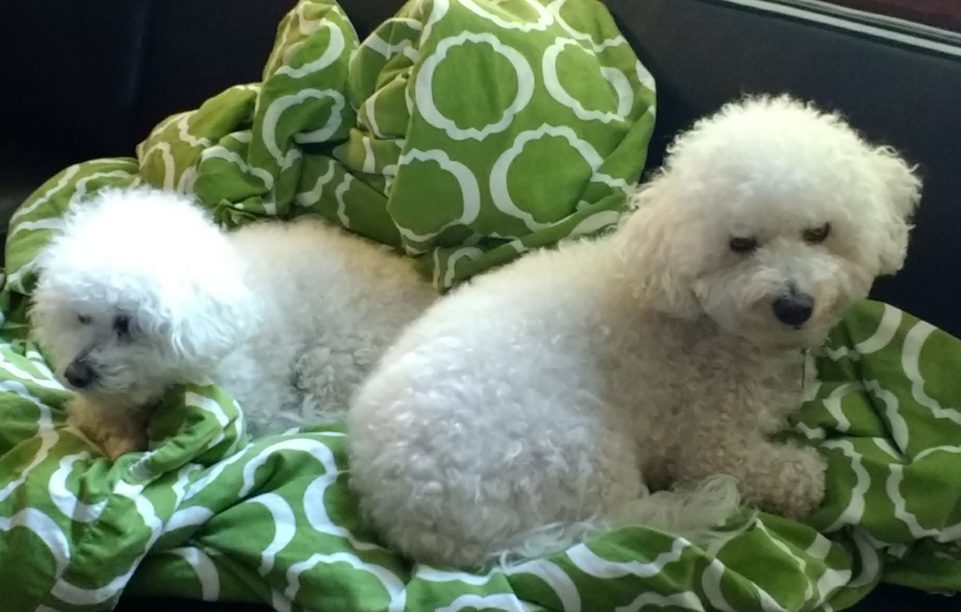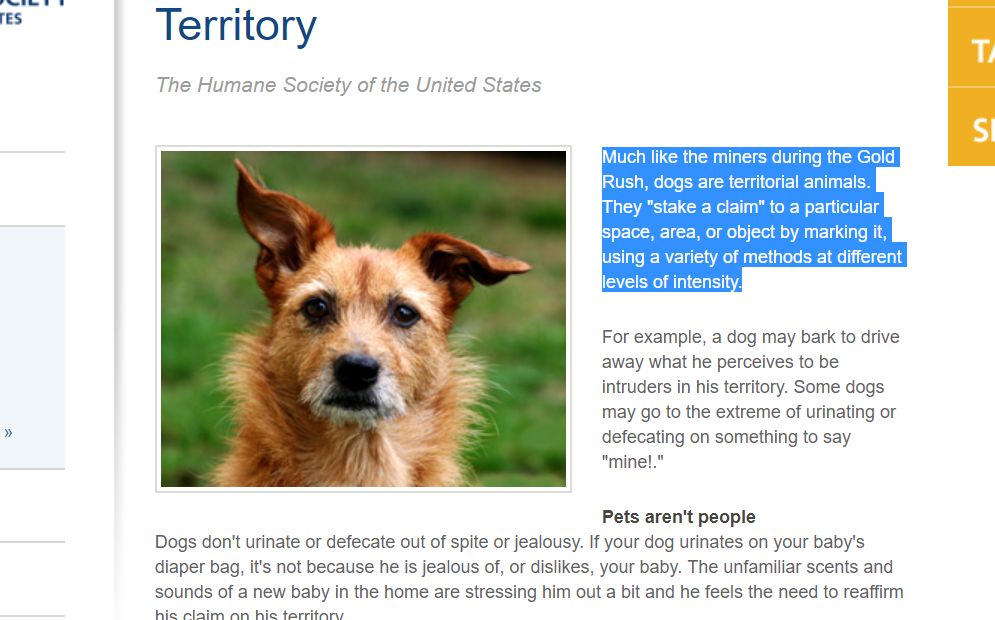As I was reading about dogs on the internet, as one does, I learned that dogs are gold miners, profit-seekers extracting mineral value from a land which has been dispossessed from the native peoples who once lived there, and that in order to advance themselves in a capitalist society—at the expense of their fellows—dogs seek to extract land from nature and the commons, enclosing it, and thereby maximizing their ability to extract value from the land which they can thereby be said to “own.”
You have to read between the lines a little, of course, but I’m a good reader. The phrase “Much like the miners during the Gold Rush” would seem to indicate that we are dealing with “analogy,” one of the tricksy ways that rhetoricians hedge their statements so as to better confuse and deceive. But I trust that the internet only seeks to help us better understand our canine friends, and so I choose to believe that the dogs really are “much” like miners during the gold rush of the 19th century.
The world is a complicated place, so we must put our faith in those we can rely upon.
I have read Jack London, for example, and in books like The Call of the Wild and White Fang, we can see very authoritative portraits of dogs who took part in the gold rush in the Yukon. The sled-dogs Buck and White Fang struggling for dominance and fight to the death to defeat the competition and to master nature (in service of their nature!). Surely these noble savage beasts are the best analogy for Pepita and Pequod, our small bichon frise mongrels?
Here are Pepita and Pequod:

Let me shed my faux credulity: it’s really strange that people talk about dogs as if they’re resentful suburban sociopaths, defending their fences and yards and territory against all comers. “Like miners during the Gold Rush,” really? I’m no expert, but that’s not how our dogs act at all. It’s true that they bark at people outside, and they’re desperately concerned when a stranger suddenly opens up the front door—or even worse, when the mail carrier drops something into our house—but I’ve made a fairly extended study of how and where and when our dogs pee on things, and the answer is: they pee on things wherever they go, all the time, as much as they can, EXCEPT for when they are in the territory they actually defend.
They don’t like to pee in the house; they would prefer to pee outside of their territory. And honestly, that makes a lot of very basic, simple sense. As the ancient dog proverb goes, “Don’t poo or pee where you eat, sleep, and play.”
Instead, it’s obvious: dogs peeing is social media.
They are writing up little blogposts in the yard, tweeting their thoughts on trees, lazily vague-booking on lamp-posts, and then copiously commenting on everybody else’s posts. Shady subtweets and savage burns out in the open; the discourse is everywhere! But the last thing they want is for other dogs to stay away; they are desperate for company and conversation. And so, they urgently check their mentions on every walk, looking for likes and comments; they consider where the argument has gone, and how it has developed since Muggsy and Tipple started it out the other day. They link to each other’s work; they try to keep up with the trending topics, and when something really exciting is happening—like when the UPS truck has been by—they particularly want to check the pulse of the neighborhood.
This is why dogs are so careful about smelling all the nethers of other dogs that they meet: they are looking up profiles, and adding names to their address book. They want to keep tabs! They want to know who it was that wrote that fire thread on the hedges in front of the house, who that was down by the tennis courts that’s been eating a lot of meat, and who it was whose commentary on the Honda Civic by the Italian restaurant was so pungent and on point.
Most of all, they are proud of their work. The labors of their body, the nice food they have been eating and the work they have done to process it, they would love for everyone to see how well they’ve been doing, and to admire them; look upon my works, ye neighborhood dogs, and admire how nice it is! And without a chorus of peers and fellow citizens, how can their accomplishments have value? What is value without a society in which to share and enjoy it? What purpose creativity, if not for the world to see and smell and enjoy your work?
This is why dogs are in such a hurry, such a rush to go for a walk. Good fences make good neighbors if we pee on them together.
Aaron Bady






